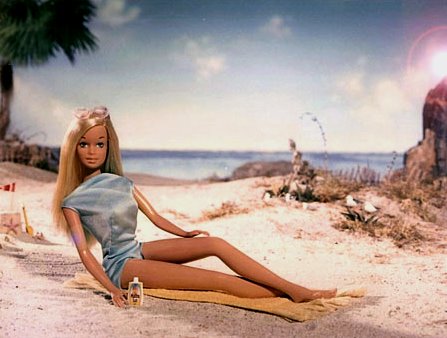Enter the injectable fake-bake. Melanotan is an analogue of the naturally occurring alpha-melanocyte stimulating hormone and induces melanogenesis (note: do not confused melanotan with melatonin, a hormone associated with circadian rhythms). For those willing to inject themselves with an experimental drug, melanotan seems to provide said risk-takers with a tan sans sun or tanning bed exposure.
 But all is not well in the land of tan. Three different countries' regulatory agencies have warned consumers against purchasing the unapproved injectable, two in the past few months alone. Last year the FDA warned a vendor who was illegally marketing melanotan II, insisting that the evidence for safety and effectiveness is scant.
But all is not well in the land of tan. Three different countries' regulatory agencies have warned consumers against purchasing the unapproved injectable, two in the past few months alone. Last year the FDA warned a vendor who was illegally marketing melanotan II, insisting that the evidence for safety and effectiveness is scant.In August of this year, the Danish Medicines Agency also warned consumers against purchasing the product online, as the product's claims were undocumented. In particular, long-term side effects aren't known, DMA said.
Today the U.K.'s Medicines and Healthcare products Regulatory Agency issued a warning along the same lines as the other countries. A story from BBC News highlighted perhaps an unexpected consequence of the demand for injectable bronzing: "The BBC investigation found needle exchanges across the UK have noted more and more people coming in to get syringes to inject the tanning drug." Is that scary, or what? (I wonder if there will be some sort of association between melanotan users and an increase in street drug use.)
For more interesting reading on injectable cosmetics and supplements, see this Wired article from October 2006.






Comments